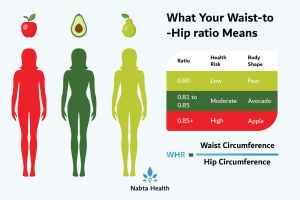Measles in 2018: Should you Worry?

The Centers for Disease Control and Prevention published its mid-year report recently totaling the number of measles cases in the US from January 1 through July 14. In that period, the US had 107 confirmed measles cases in 21 states as well as the District of Columbia.
These numbers are high compared to last year, where the US saw a total of 118 cases in 12 months. Measles was found in: Arkansas, California, Connecticut, Florida, Illinois, Indiana, Kansas, Louisiana, Maryland, Michigan, Missouri, Nevada, New Jersey, New York, North Carolina, Oklahoma, Oregon, Pennsylvania, Tennessee, Texas, Washington and the District of Columbia.
With everything happening, it is important to have a family doctor and also take Nabta vitamin D test for a good lifestyle modification
The CDC suspects the virus is brought into the country by travelers from areas with a higher incidence of measles, and then it spreads in areas where vaccination rates fall below what is needed for herd immunity. In the US, children are immunized against measles when they turn 1, and then again between the ages of 4 and 6. If your child has been immunized once, their protection against this disease is approximately 93 percent. If they’ve received two shots, it’s better than 97 percent, which should offer peace of mind.
Herd immunity is a term doctors use to describe the percentage of people in a population that need to be vaccinated in order to prevent a disease from spreading on its own. The idea is that if a group of people are nearly all vaccinated, the measles virus cannot spread because the vaccinated people act as barriers. Usually, herd immunity requires that 95 percent or more of a community be vaccinated.
Measles spreads by respiratory droplets—an infected person coughs or sneezes and the virus particles are shot out and onto a table, doorknob, toilet, or other object. The next person to touch that object and then their own nose or mouth is at risk for catching the virus.
One in one thousand children will have serious complications from the measles virus. Even more frightening is that complications from measles can occur years later! Worldwide, the World Health Organization estimates that 450 children die each day from complications from the measles.
Tips for parents and caregivers
Immunize all children over the age of 12 months with the measles vaccine (MMR).
Avoid exposure whenever possible.
Immunize all children over the age of 4 with a second dose of the measles vaccine.
If you think your child was exposed and they become ill, alert your doctor before arriving at the office. The virus is highly contagious and young infants are at risk for catching the virus in waiting rooms.
Understand that if your child is unvaccinated and a case is identified at their school or daycare, you will be expected to keep them home even if they are well until all cases are identified and the outbreak contained.
Sources:
- World Health Organization
- Measles.
Powered by Bundoo®










